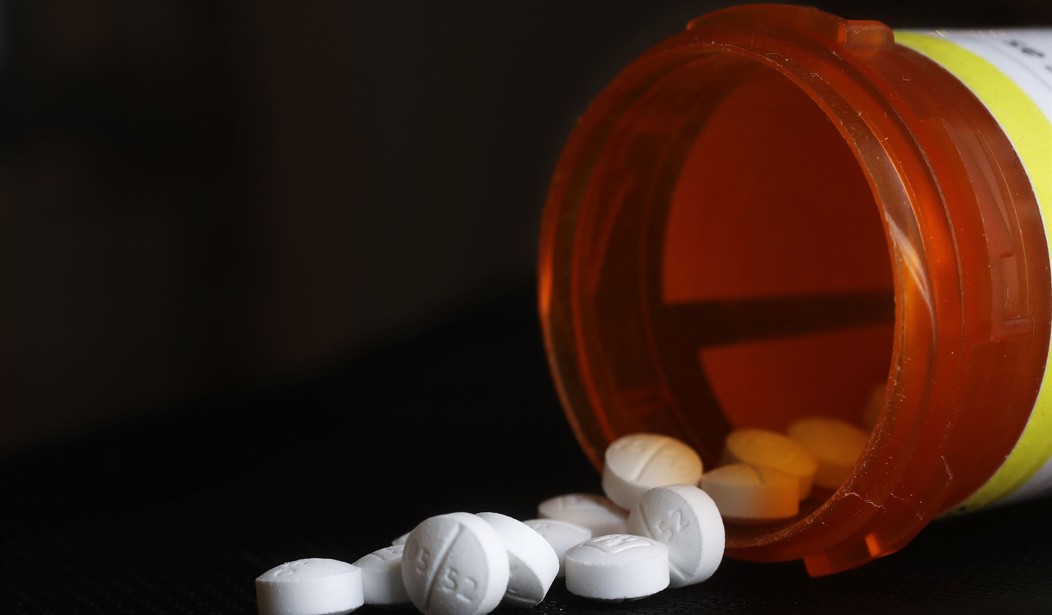Opioid addiction has been a problem for a long time, but 2020 has made it worse. Congress needs to do something in the upcoming coronavirus relief package to address the growing opioid crisis that has resulted because of the pandemic.
It wasn’t that long ago that the media covered the opioid epidemic like it does the coronavirus crisis. While the coronavirus is rightly getting a lot of attention, the scourge of opioid abuse and overdose hasn’t gone away.
Instead, it’s worsened the problem.
President Donald J. Trump has done great work to end America’s opioid crisis, with $6 billion in new funding secured in 2018 and the implementation of new policies to cut opioid prescriptions. Now it is time for Congress to address the 2020 crisis and include resources in the next relief package.
According to preliminary data from the Centers for Disease Control and Prevention (CDC), 2019 was the worst year on record for drug overdose deaths. White House statistics show that overdoses have spiked a whopping 11.4% in the first four months of 2020 alone. Anecdotal evidence from the states, many of which are key election battlegrounds, support this troubling trend. Given the severe anxiety, isolation, and economic pressures many Americans are facing, the coronavirus pandemic represents the perfect storm for addiction.
As more and more Americans undergo surgeries they may have delayed at the beginning of the pandemic, the risk of unnecessary opioids flowing into the community increases — as do the dangers of opioid abuse, diversion, overdose, and death. To help ensure patient choice for non-opioid alternatives when appropriate and prevent an another surge of powerful painkillers, Congress must include the Non-Opioids Prevent Addiction in the Nation (NOPAIN) Act (S. 3067/H.R. 5172) in the next coronavirus relief package.
Recommended
While each person’s story is different, surgical pain has been a primary pathway for Americans to become addicted to opioids. Each year, roughly 3 million individuals become persistent opioid users after surgery, meaning they continue to take drugs like oxycodone or hydrocodone for 3 to 6 months after their procedure. Moreover, the average patient receives more than 80 opioid-based pills to help them manage post-surgical pain— exposing them to risk of addiction even if they take the drugs as prescribed and potentially opening the painkillers to diversion in the patient’s family or community.
Medicare patients, already among the most vulnerable to coronavirus and the isolation that comes with certain quarantine measures, are susceptible to opioid abuse. According to the Senate Committee on Aging, one-third of all Medicare beneficiaries with Part D coverage (or nearly 15 million seniors) received an opioid in 2016. One analysis found that nearly a quarter-million Medicare beneficiaries were diagnosed with opioid use disorder in 2015, and that prevalence of opioid use disorder seemed to spike after age 65. To be sure, opioids can be appropriate for some patients, but a high percentage of seniors just don’t have sufficient information on the alternatives they could use to manage pain. Too often, opioids are a doctor’s first choice for pain management.
Medicare makes the problem even worse. Under current policy, physicians are structurally incentivized to utilize opioids over safe, effective alternatives. While Medicare provides separate reimbursement for fentanyl and postsurgical opioids under Part D coverage, it does not extend the same luxury to non-opioids utilized in certain healthcare settings. As a result, physicians are forced to pay for innovative treatments such as long-acting local anesthetics and intravenous NSAIDs out of their own pockets. By providing a single reimbursement for the cost of the entire procedure, a practice called packaging, Medicare signals that it considers these non-opioid treatments to be on par with supplies like gauze or gloves — not safe, effective treatments. With so many doctors feeling financial pressures, it is little wonder why opioids have become so prevalent.
Opioid addiction is a national problem that demands bipartisan solutions. Congressional leaders from both sides of the aisle have championed the NOPAIN Act as one pillar of comprehensive response. If passed, the bill would remove the structural Medicare barriers that incentivize opioids. By finally leveling the playing field, seniors will be empowered to choose from a wide array of safe, effective alternatives to opioids during and after surgery. And, if their physicians legitimately believe opioids would be the most appropriate treatment, they will still retain the ability to prescribe them.
Evidence suggests that as the pandemic continues, overdose deaths will likely surge even higher. Congress has a moral obligation to help save lives and prevent addiction by including the NOPAIN Act in the next coronavirus relief package.

























Join the conversation as a VIP Member